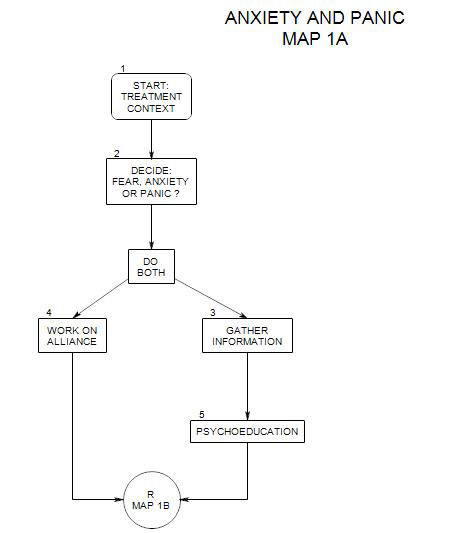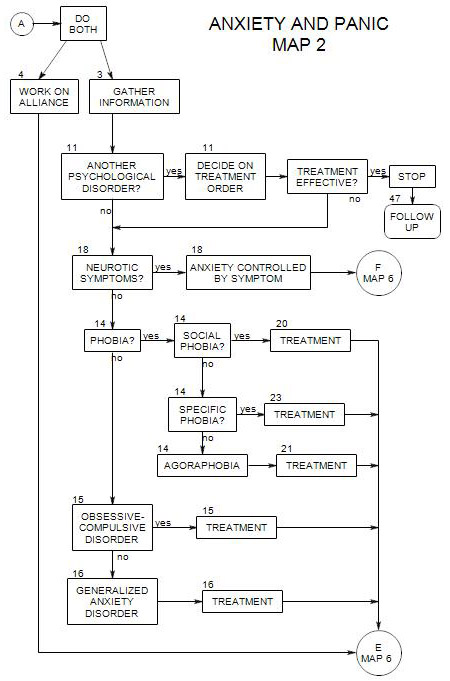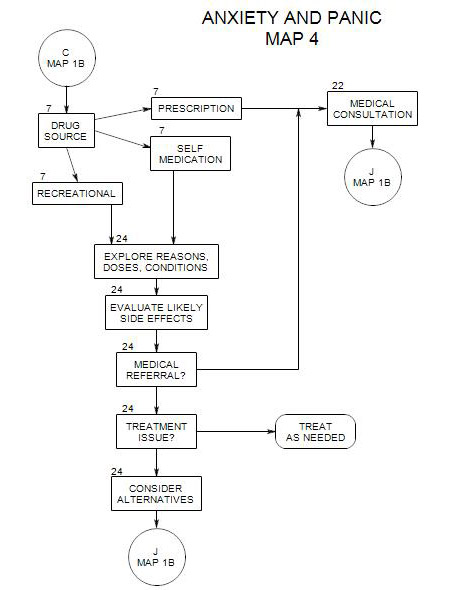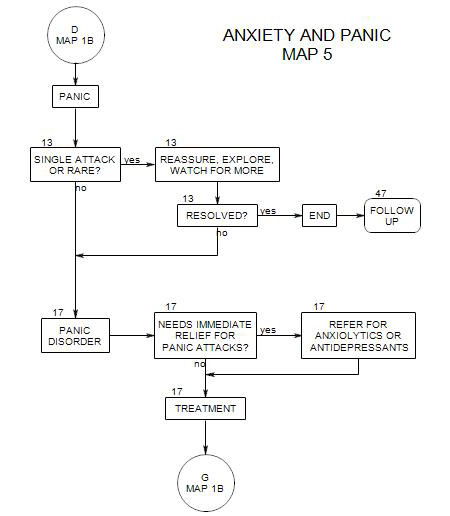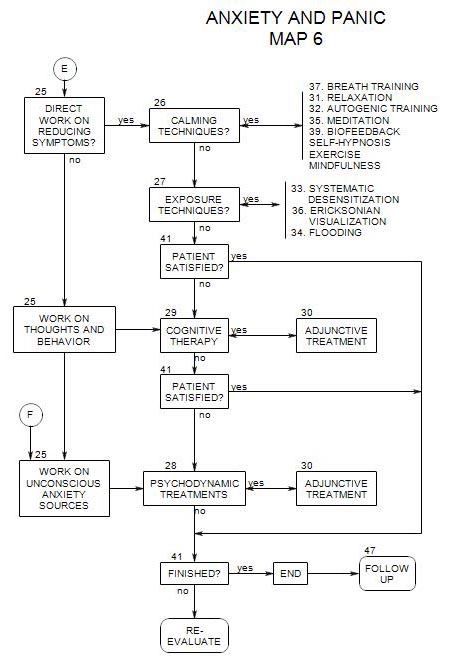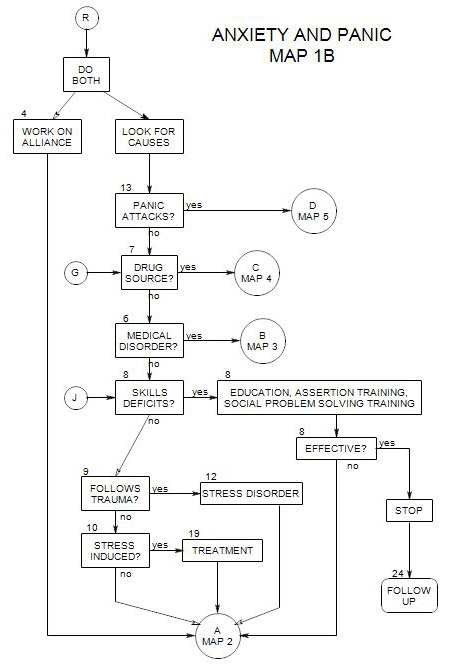
SECTIONS: 4 | 6 | 7 | 8 | 9 | 10 | 12 | 13 | 19 | 24
- Follows Section 3 on Map 2
11a. Anxiety caused by another disorder
Anxiety can be a reaction to another psychological disorder that leaves the person confused or disoriented, or feeling helpless in the face of dangers. These could include-
- avoidant personality, which may have common roots with social phobia.
- hysterical symptoms may fail to control underlying anxiety.
- dependent personality with panic disorder and phobic avoidance.
- severe depression.
- borderline personality disorder with one or more phobias and severe anxiety.
- schizophrenia.
- paranoia.
Commonly the more serious disorder is addressed first, if possible, in hopes that relief from the primary disorder will lead to relief from the anxiety it has generated.
On the other hand, it may not be possible to treat the primary disorder effectively, or the anxiety may have more than one root, in which case the anxiety must be treated also.
It is also possible that the other disorder may not commonly lead to anxiety, in which the two issues need to be treated independently.
11b. Anxiety as the cause of another condition
Anxiety can also lead to other conditions, such as depression. For example, a person with agoraphobia may refuse to go outside; and that in turn can lead to boredom, depression and loss of self-esteem. When that kind of problem is likely, you might treat the anxiety first in the expectation that the person’s boredom and depression would also be relieved.
11c. Adjunctive treatment
When both anxiety and depression are to be treated, it is common to try adjunctive treatment with an antidepressant, many of which are helpful with both disorders.
